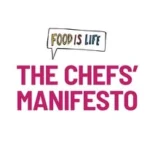Australia’s First Chefs’ Manifesto Action Hub
Set against the backdrop of Melbourne’s diverse food scene, a group of chefs, food researchers and industry leaders came together in May to launch Australia’s first Chefs’ Manifesto Action Hub.
By Matthew O’Leary
Melbourne is known the world-over as a food capital. Its culinary diversity, cafe culture and brunch menus have influenced the evolution of the daytime dining scene across the world. But less well known is the growing food and nutrition insecurity across the city and throughout Australia.
Australia – like much of the world – is facing multiple challenges affecting the availability of nutritious food, including rising prices, and climate impacts on supply and food waste, said Paul Newnham the SDG2 Advocacy Hub CEO and founding facilitator of Chefs’ Manifesto – a global network of chefs exploring how they can take action to help positively transform food systems.
Australia wastes about 7.6 million tonnes of food across the supply chain every year – approximately 70 percent of this is edible. At the same time 3.7 million households ran out of food in 2023 – that’s more than the number of households in Sydney and Melbourne combined.
The first Chefs’ Manifesto Action Hub held at RMIT University in Melbourne’s CBD explored “Upcycling food for a zero-waste future”. Jointly organised by RMIT Professor Tania Lewis and Keren Allen from Chefs’ Manifesto, the event brought together local food system heroes including Chef Chris Locke, Chef Laura Boulton, food critic and creative director for the Melbourne Food & Wine Festival Pat Nourse and food systems researcher Savannah Supski.
“From prioritising seasonality to zero-food-waste principles, chefs are using circular economy approaches to transform food systems from their kitchens,” Newnham said.
“The Action Hub creates a space for food systems champions to share ideas, learn from one another and scale solutions that make our food drivers of the UN Sustainable Development Agenda.”
Brewing Sustainability
Cafés serve up circular change
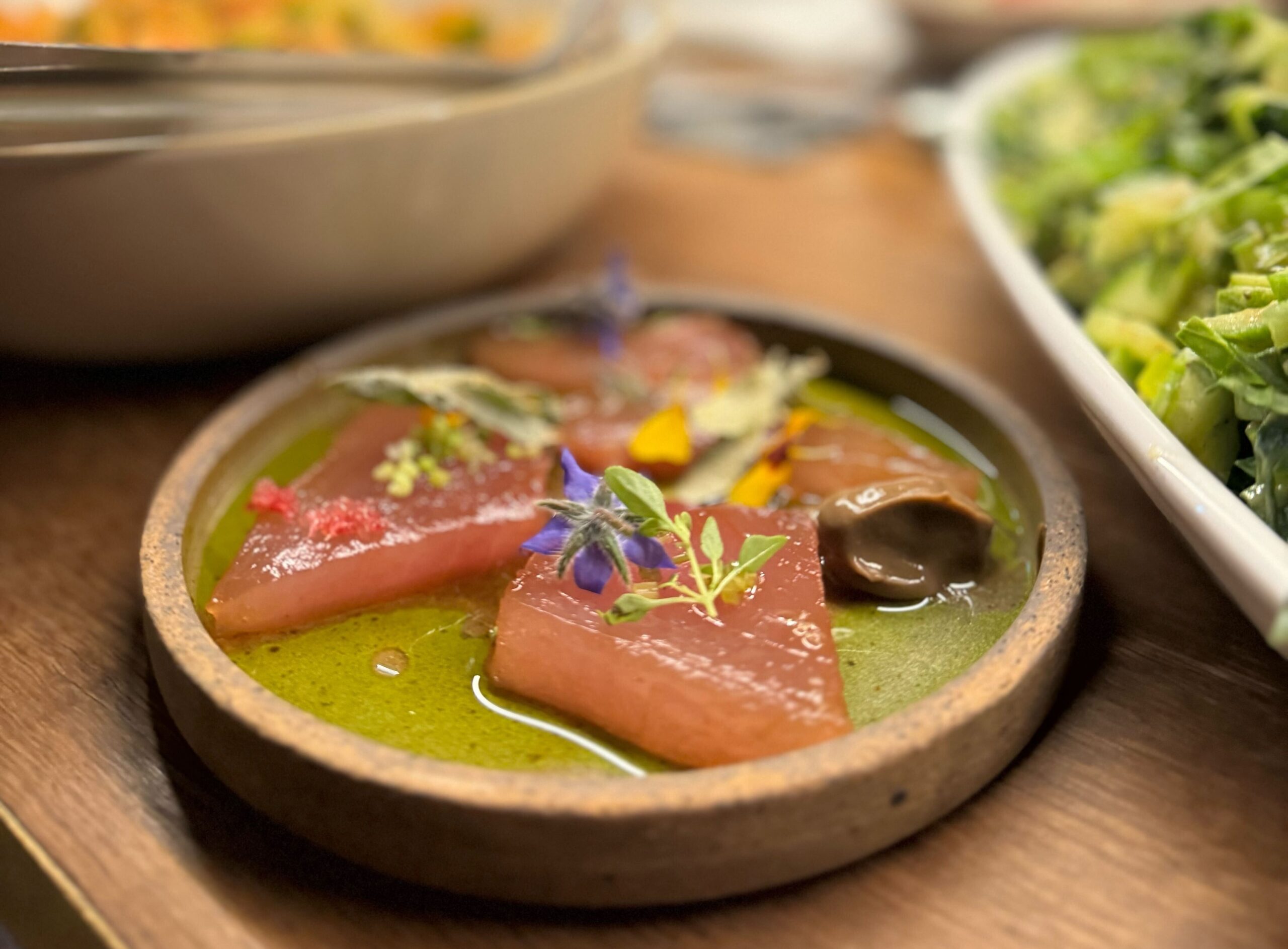
The first Action Hub theme built off a research project led by RMIT Professor and Café Lab co-founder, Tania Lewis, working with ex-Chef Helen Addison Smith, that is documenting how chefs and food industry professionals are driving circular approaches in small to medium cafés and restaurants. This research will be published as a best practice guide for Australian cafés to embrace circular economy principles.
“Small cafés and restaurants are having a big impact on transforming food systems for the better. From embracing ‘root-to-stalk’ principles to promoting seasonality and sharing food surplus with the community there are many exciting initiatives underway to embed the circular economy in the hospitality industry,” Lewis explained.
“The Chefs’ Manifesto network is a key platform to showcase these innovative practices and explore ways to share skills and knowledge within the industry.”
The research comes out of Professor Lewis and Dr Addison-Smith’ zero-waste, food justice project Café Lab whose aim has been to support food insecure Melburnian’s and contribute to building a sustainable and low carbon hospitality sector.
Conversation Starters
Sustainable menus spark dialogue
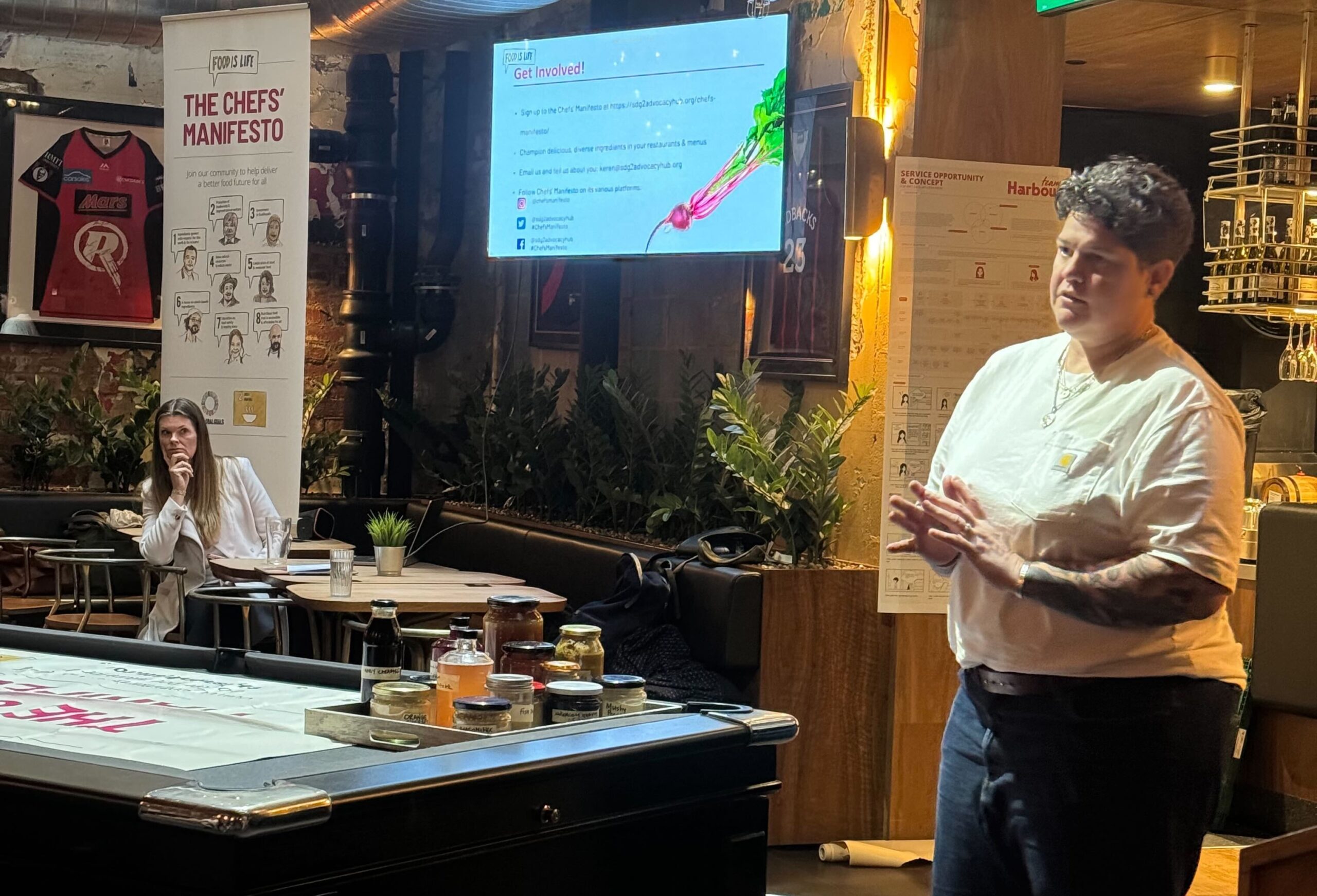
Chef Laura Boulton uses her menus to spark conversations about sustainability. Raised on fishing and farming, Chef Laura learnt the value of ‘nose-to-tail’ practices from an early age. At the Action Hub event, she explained how her concern over the amount of food wasted in the hospitality industry inspired her to bring zero-food-waste ethos into the commercial kitchen.
“Too often we stick to traditional methods, but challenging the norm can lead to big change,” she said.
With over two decades in the hospitality sector, Chef Laura has honed her circular approaches, making it a cornerstone of her work. Working with sustainable housing collective Assemble Communities, Chef Laura built the successful zero-food-waste cafe Cassette from the ground up championing local producers. She continues this work in her new role at Square One Coffee Roasters.
“As chefs we have a role in promoting seasonality and waste reduction. By talking to our suppliers about what’s in season we can change our menus accordingly, even if it means skipping tomato or avocado toast for part of the year.”
“Our menus are conversation starters on sustainability. We redesign our menus season on season and explain to customers why we have changed the dishes, let them know what is in season and talk them through the zero-food-waste practices behind our products,” she explained.
At Chef Laura’s zero-food-waste cafe whole products are used and often reimagined. Her creations starting conversations include vegetable powders made from dehydrated onion skins that are used to season dishes, coffee kombucha and braising bacon with surplus espresso shots. An on-site composting system manages food waste leftover from diners’ plates.
“Customers see our preserved, fermented and pickled items on the counter and start to ask questions. It’s a great way to engage and educate on the impact of food waste in bite sized chunks,” she said.
Creative in the Kitchen
Turning market waste into gourmet delights
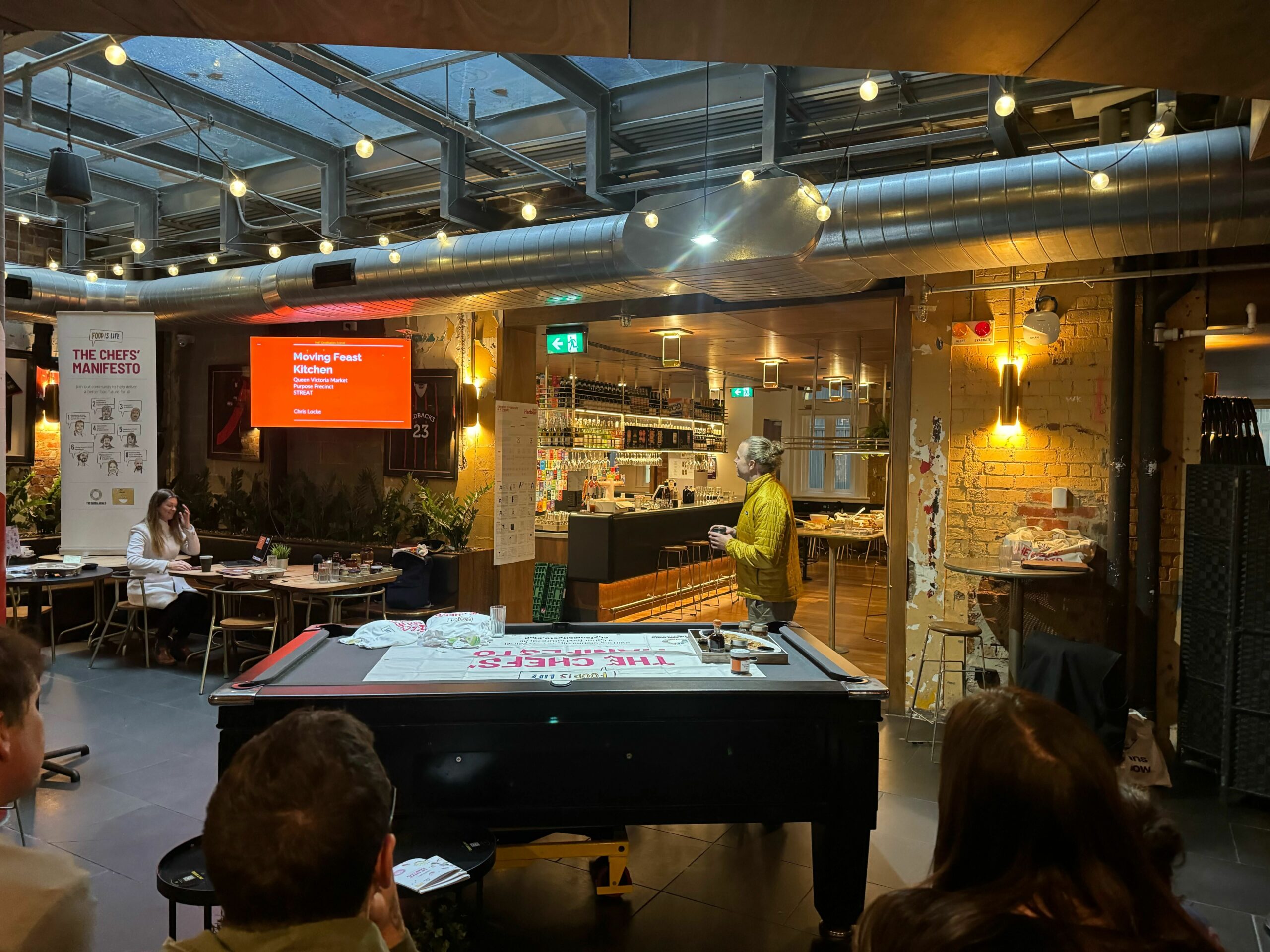
Chef Chris Locke champions fermentation, sustainability and uses his kitchen to make positive changes in food systems through circular economy approaches. Like Chef Laura, he believes in the role of chefs to promote sustainable practices and shares his tips, tricks and recipes on fermenting and other practices through blogs and social media.
“People are always watching chefs for cooking tips and meal ideas. Chefs have the power to promote sustainable sourcing, cooking and consumption,” Chef Chris said.
As Head of R&D at Moving Feast Kitchen situated in Melbourne’s Queen Victoria Market, Chef Chris is salvaging overripe and unsold produce from fruit and veg stalls to create innovative products extending their shelf life.
He told the Action Hub, “I’ve always been inspired to use creativity in the kitchen to make delicious products out of food that would otherwise be considered waste.”
Heading the market kitchen Chef Locke experiments with waste, using methods including drying, pickling and fermentation to create long-life products that are sold in the Moving Feast Pantry store.
“Since our launch, we’ve salvaged over 1.5 tonnes of produce from the market—97% of which was edible. We’ve transformed that waste into long-lasting products like banana ketchup, sweet potato soy sauce, pickled salts, and Indian squash pickle. Now, 15 of these reimagined products are available for the public!”
The Kitchen – based on London’s Covent Garden Rubies from the Rubble – is part of Moving Feast Victoria, a network of social enterprises collaborating for a connected, fair and regenerative Victorian food system, and the kitchen will be supporting fellow food social enterprises to start up and scale up.
Action Hubs
Where connections accelerate solutions
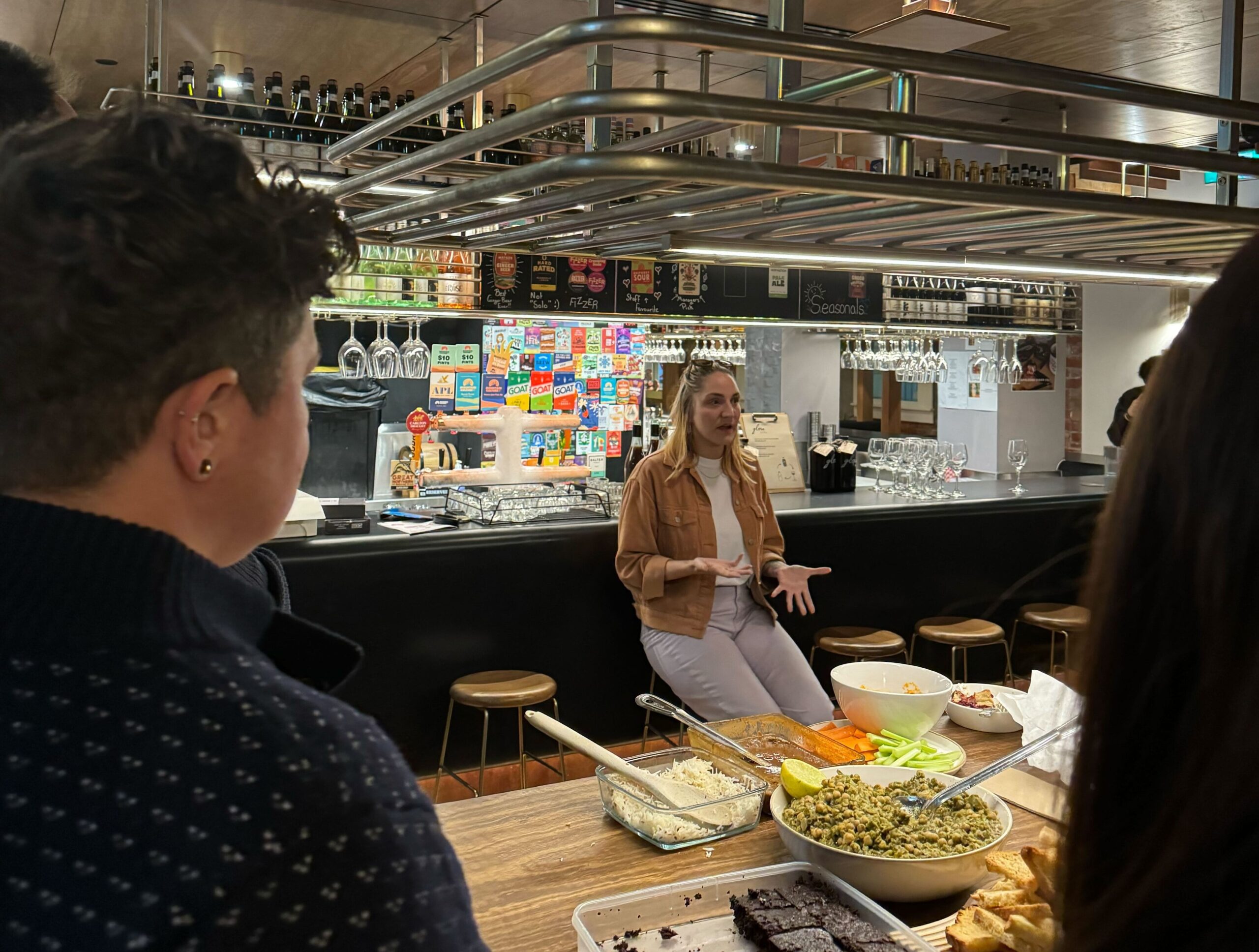
Chris has been involved with the Chefs’ Manifesto for seven years, beginning with an Action Hub in Toronto.
“Action Hub days spark great conversations and ideas, building connections and sharing solutions. In a short time we achieve a lot, we see how others tackle food waste and sustainability challenges and can bring those ideas into our own practices,” Chef Chris explained.
He believes the Chefs’ Manifesto Action Plan helps chefs connect with and impact the UN Sustainable Development Goals through clear, thematic areas that are relevant to chefs’ work.
“The Chefs’ Manifesto is created by chefs for chefs. The Action Plan links chefs to the Sustainable Development Goals in relatable ways. Thematic areas translate these goals into practical kitchen practices, focusing on the impact of ingredients and methods,” he said.
“Events like this help to share ways that the food industry is shifting the needle and moving towards a more sustainable food sector.”
Get Involved
The Chefs’ Manifesto is written by chefs for chefs, so why not run your own Action Hub or Manifesto-themed event? Contact us for support today.
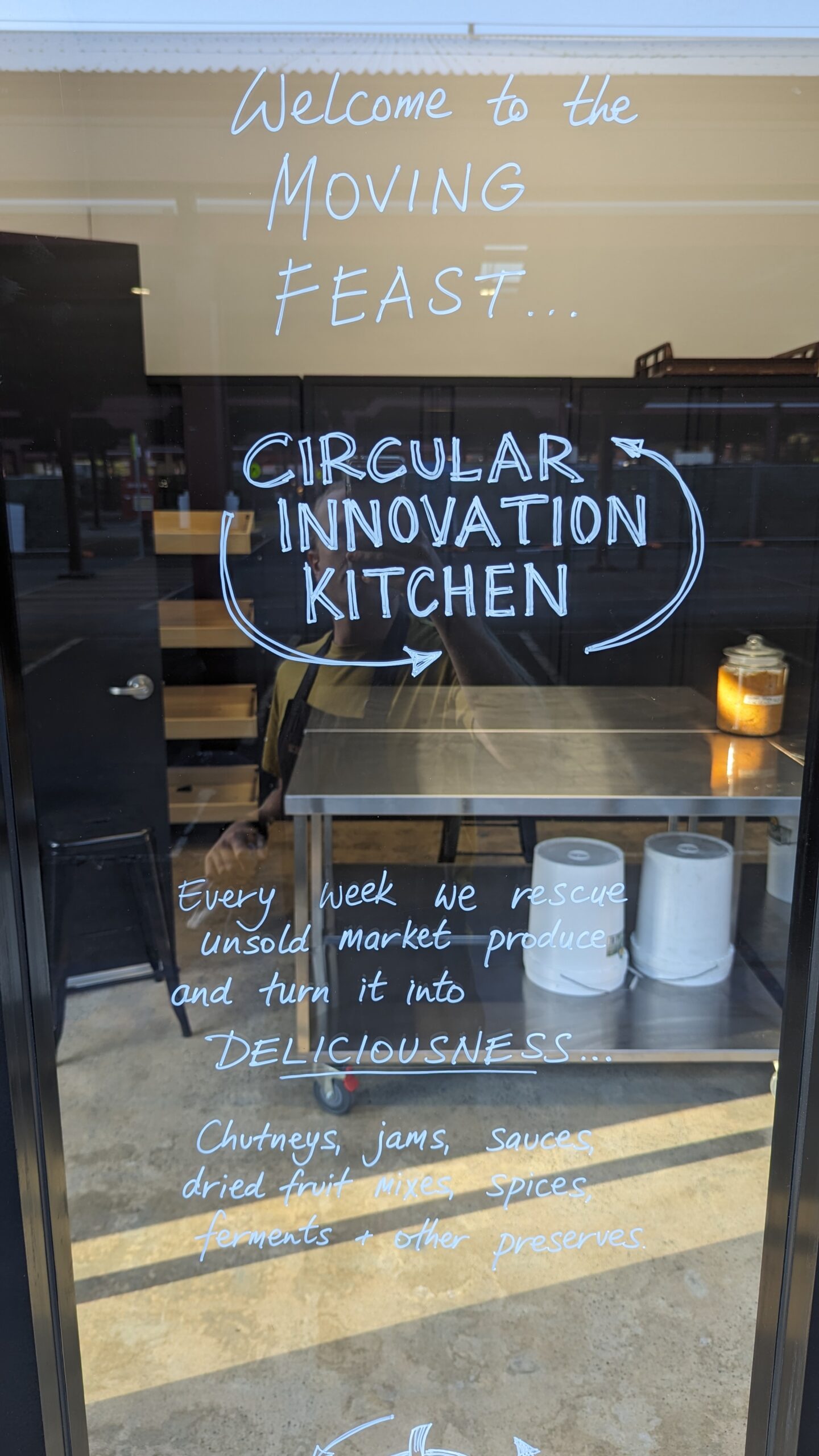

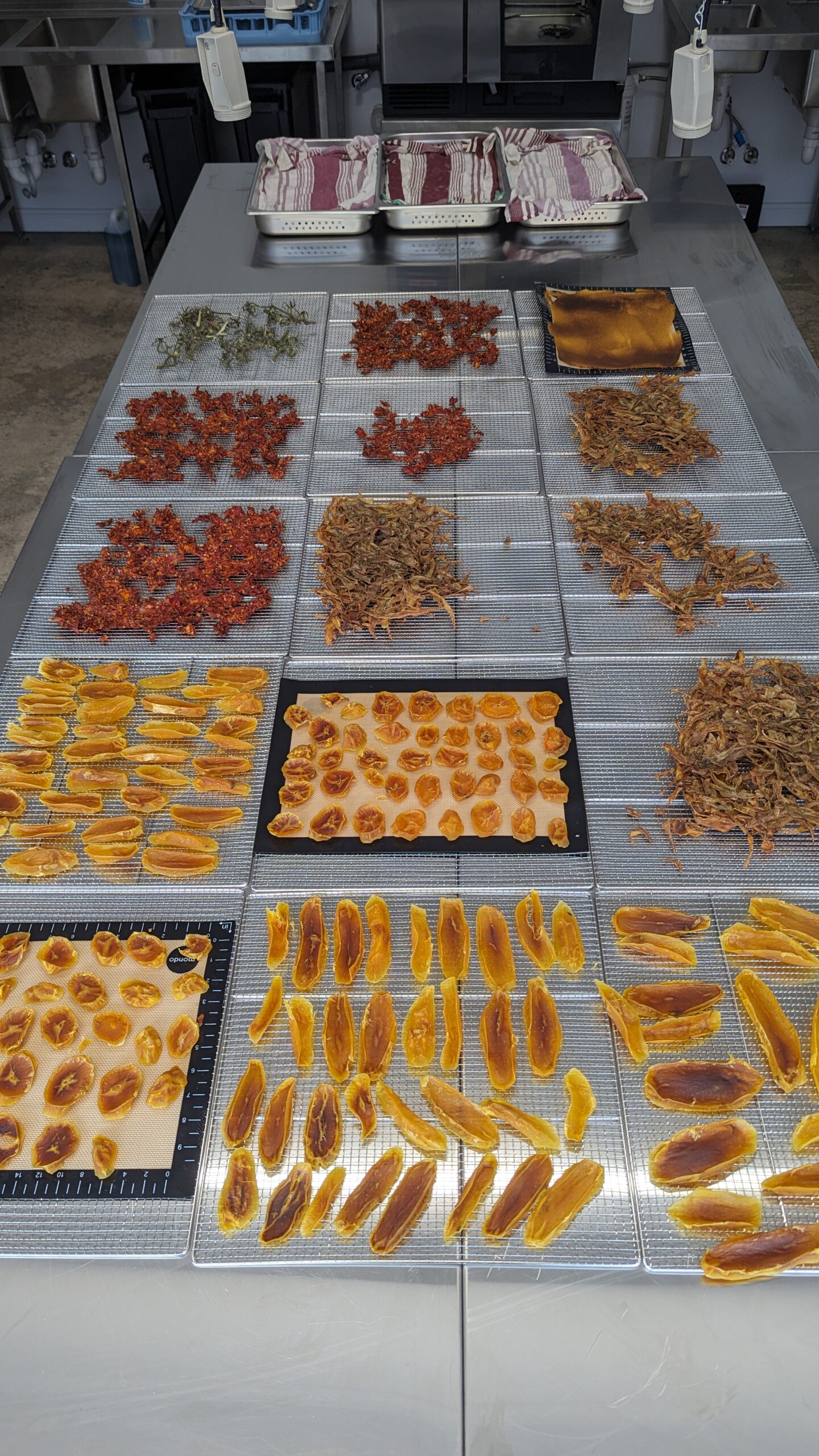

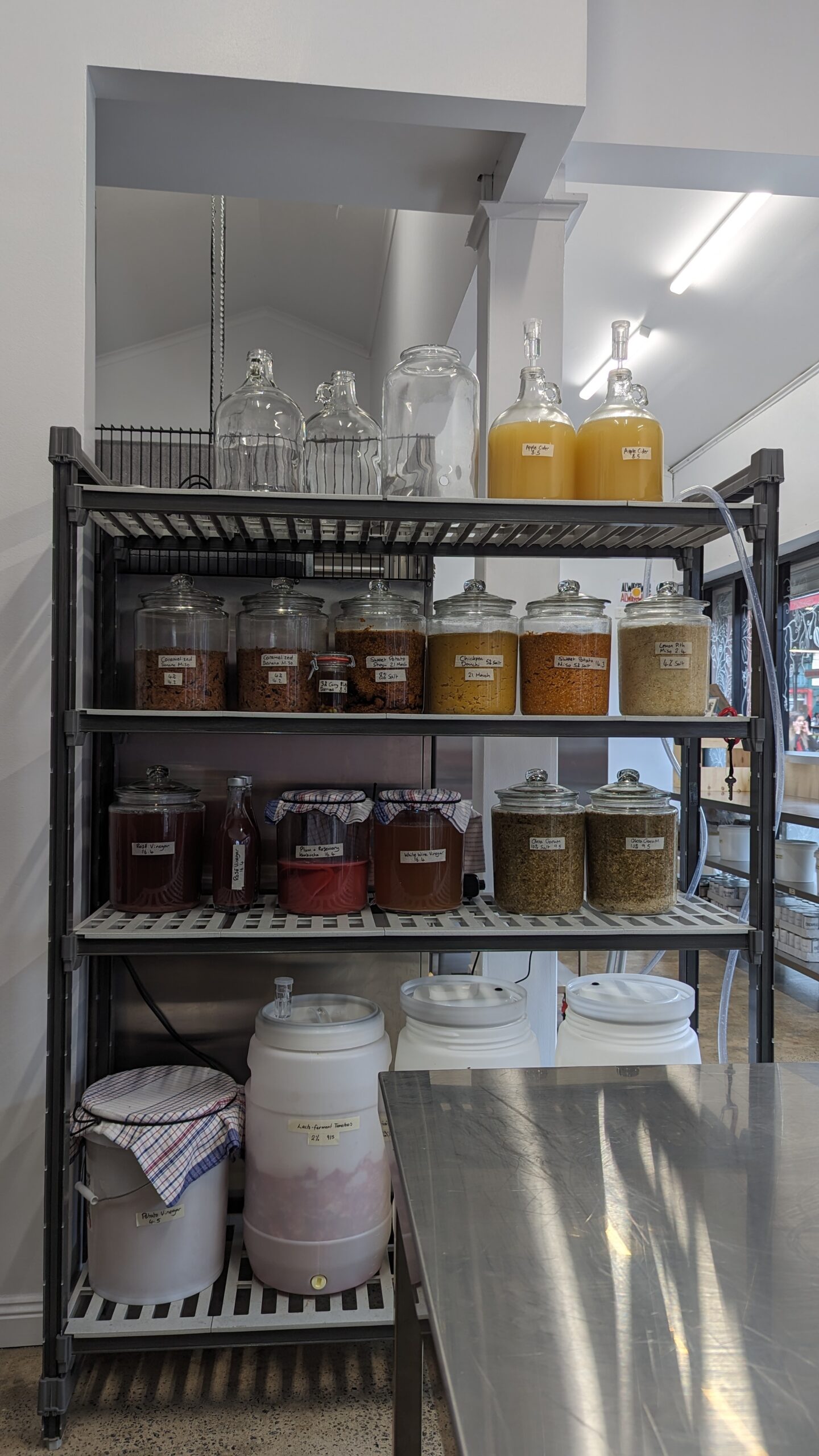
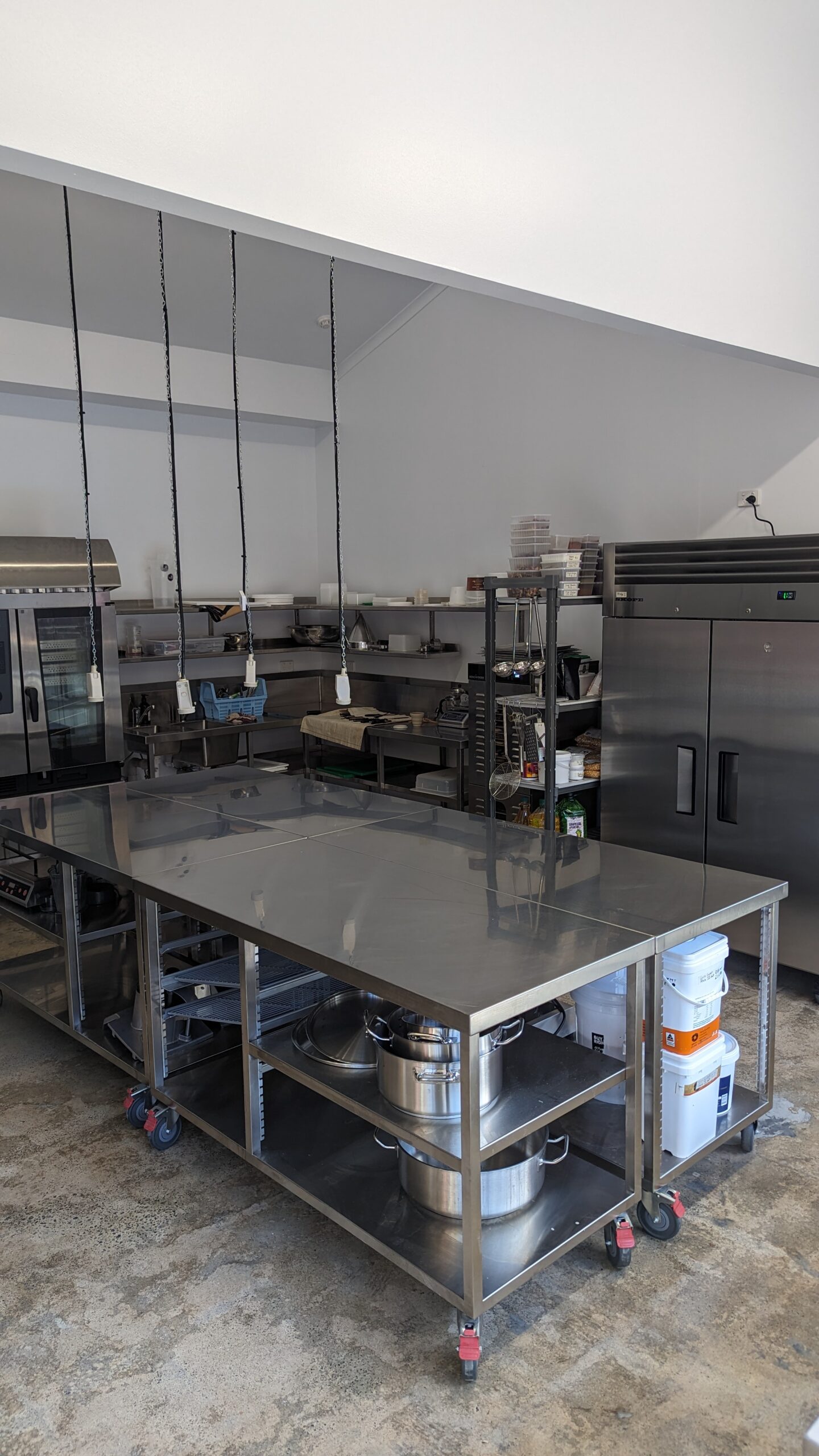
Photos from Chef Chris Locke, Head of R&D at the Moving Feast Kitchen in Melbourne’s Queen Victoria Market. Since their launch, the Moving Feast has salvaged over 1.5 tonnes of produce from the market—97% of which was edible— transforming that waste into long-lasting products like banana ketchup, sweet potato soy sauce, pickled salts, and Indian squash pickle.
Join the Chefs’ Manifesto
The Chefs’ Manifesto is a chef-led project that brings together 1500+ chefs from around the world to explore how they can help deliver a sustainable food system.
Not yet a part of the Chefs’ Manifesto? Join the community today!
